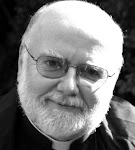The Collect for today asks God to “increase our love for one another, that both in name and in truth we may be disciples of the risen Lord Jesus, and so reflect by our lives the glory that is yours”.
Once there was a church that had the phrase “I am the way, the truth and the life” on a sign above its iron gate. The church and its message intrigued a young man, so he decided to go there on Sunday. He was not welcomed. No one spoke to him, or smiled, or offered him a handshake. After the service he left in a puzzled state.
In the Bible, God reveals that nothing in His creation is profane, that the “purity code” is a limitation imposed by humans, not God, and that keeping that purity could in fact be hindering God. This was something obviously lost on the folks in the small church that the young man visited. They were uneasy with somebody they didn’t know, so they kept their distance, “he might not be like us”.
Have you ever thought about what’s going on in the world today? Have you ever wondered why many are afraid of immigrants, legal or not? Have you ever wondered why many are afraid of people of different a sexuality? Do you understand that Sunday morning can be the most exclusive, segregated, and separate time of the week? All week long we work with, bump up against, commute with, and eat with people who are not like us, but often on Sunday we attend a church that consists mostly of people like ourselves.
There are exceptions, of course. But many of our churches do not look anything like the communities that we live in or the grocery shops we shop in. Why is that? Do you ever wonder?
The writer of Revelation offers a passage often read at funerals. The image of death having been vanquished, of mourning and crying being no more, and of God wiping away every tear is a powerful image, followed by the declaration that God is making all things new. One of those new things is surely the way we experience one another, as diverse gifts of the God who made us all.
If we begin to think about people who differ from us in race or culture or sexuality, then see them as gifts to us from God. And that gives us a wholly different point of view toward the many people sent to us by God. We can turn away from them, but are we not then also turning away from God?
When we hear the gospel and Jesus’ own words call us to love one another, “Just as I have loved you.” This is not a phrase easily dismissed. Jesus’ entire ministry, including his death and resurrection, hangs on this phrase, “Just as I have loved you.” Jesus loved people in a radical way. Today he would be – and often is – in the supermarket talking with the checkers, the shelf fillers, and the customers finding their way through a bewildering array of products. He is there because that is where all the community goes. He is there because that may be where a lonely newcomer to town gets a smile at the cash register, or even a query, “Are you new here?”
But what about church? What about that Sunday morning experience that is often the place where we see only familiar faces, only people like us, only people we know? Is Jesus there? Of course he is, but he is there to welcome the stranger – whoever walks in that door timidly and tentatively looking for new community. Are we ready for that? Do we seek those people? Would they be welcomed, truly welcomed here?
Not long ago the young man who had visited a church and was made to feel like an outsider was back in the neighbourhood and walked by the church he had visited on that Sunday. It had been many years. The sign “I am the way, the truth, and the life” still stood above the iron gate. Then he saw that the church doors were boarded over, as were many of the windows. The church was obviously closed and looked as though it had been for some time. He walked on, wondering what had happened. We can draw our own conclusions, but if that church had welcomed him and others instead of being closed to what God was sending them on frequent occasions, the end of their story might have been very different indeed.
